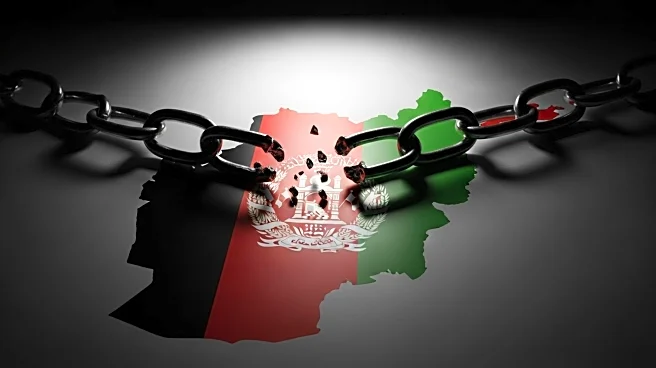What is the story about?
What's Happening?
The Taliban government in Afghanistan has initiated a nationwide shutdown of internet and telecom services, leading to a near-total digital blackout across the country. This action, reportedly part of a phased campaign led by Taliban leader Hibatullah Akhundzada, has resulted in significant disruptions, including grounded flights and frozen banking services. The United Nations has issued a warning about the potential 'significant harm' to Afghan citizens due to this blackout. The Taliban has justified the move as a measure to curb 'immorality' online, although the shutdown has also affected telephone services. Afghan telecom companies are attempting to manage the situation under Taliban directives, with hopes of restoring services soon.
Why It's Important?
The internet blackout in Afghanistan has profound implications for the country's economy and society. The disruption has halted banking services, grounded flights, and impeded humanitarian operations, including those responding to natural disasters. The UN has expressed concern over the blackout's impact on the Afghan population, which is already facing significant challenges under Taliban rule. The move further isolates Afghanistan from the international community, potentially exacerbating the country's economic and humanitarian crises. The Taliban's justification of the blackout as a means to control online 'immorality' raises concerns about the regime's increasing restrictions on personal freedoms and access to information.
What's Next?
The Taliban's internet shutdown is expected to continue until further notice, with the possibility of further restrictions on communication services. The international community, including the UN, is likely to increase pressure on the Taliban to restore internet access and address the humanitarian impact of the blackout. Afghan telecom companies are working to navigate the situation and restore services, but the timeline for full restoration remains uncertain. The situation may lead to increased international scrutiny and calls for action to support the Afghan population during this period of digital isolation.















